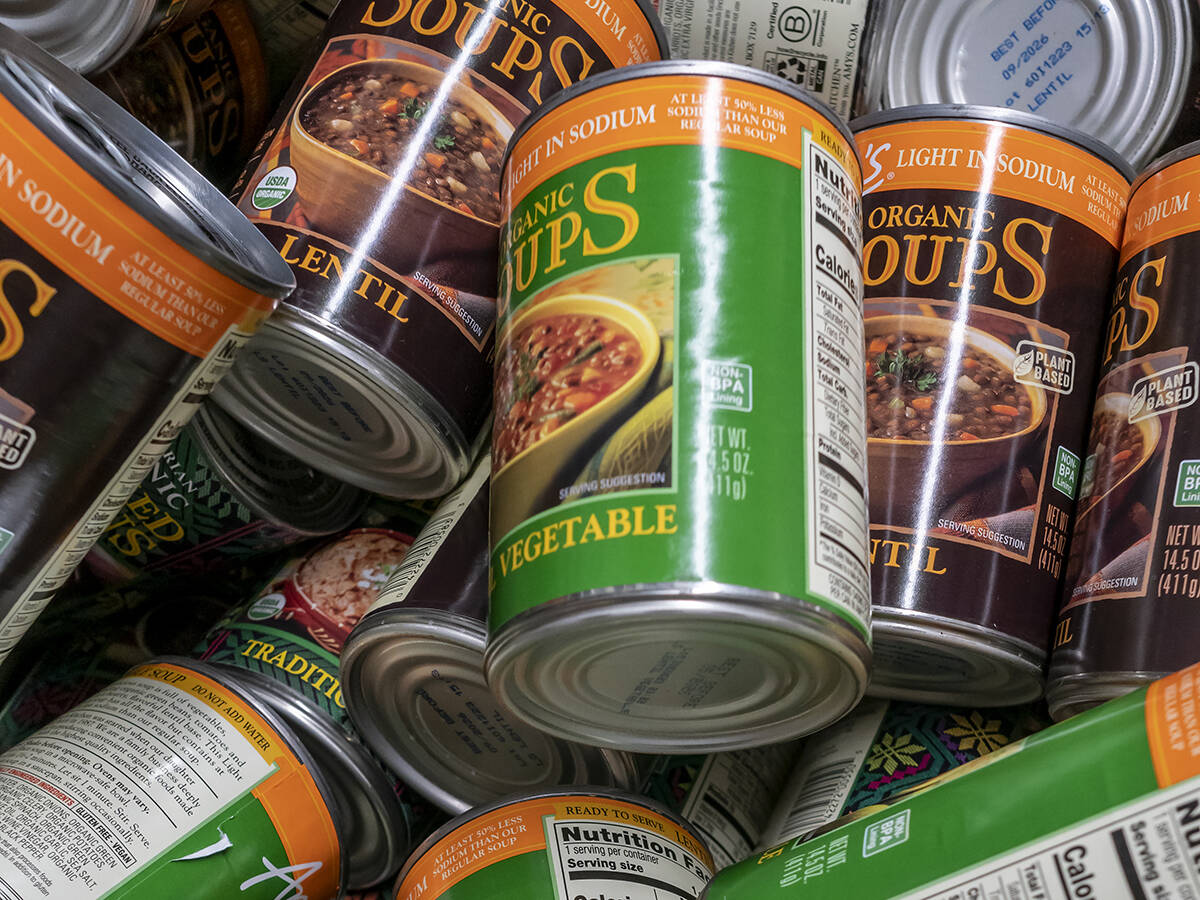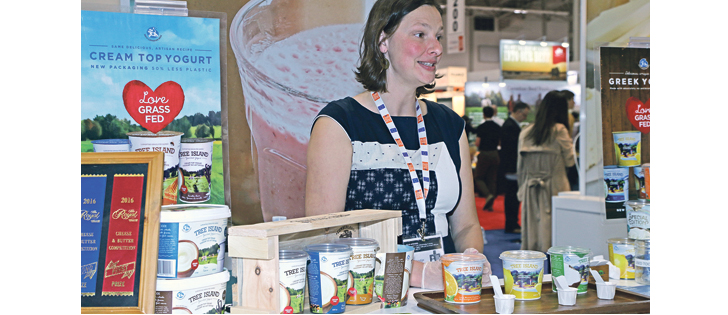TORONTO — Tree Island Yogurt is hoping consumers beyond its British Columbia borders will cultivate a craving for its artisan yogurt.
Merissa Myles and her microbiologist husband, Scott DiGuistini, founded the Comox Valley company five years ago that today employs 19 staff and processes 8,000 litres of milk weekly.
The pair and their young family came to the SIAL international food show in Toronto this spring to provide samples of cream top and Greek yogurt, created mainly from grass fed dairies, but also to meet grocers and buyers and make plans for the company’s future growth.
Read Also

Sustainable food has ‘lost all meaning’: prof
That marketing strategy is deader than a doornail, says a University of Guelph professor who specializes in consumer preferences and perceptions of agriculture and food.
“It’s nice to have a booth and just stand there, but it’s good to have an idea about who to meet,” Myles said.
Their yogurt is currently in 125 locations in British Columbia, but the company is considering supporting farmers in another province by creating a micro-plant, expanding their current plant on Vancouver Island and incorporating unique fruit into their yogurts.
“The real question as a family is how much risk we can handle.”
The couple was inspired to create the business after tasting freshly made yogurt on a trip to France.
“There was definitely room in the market for a 100 percent Canadian milk product,” said Myles, who noted B.C.’s robust sales in yogurt.
“It’s a good addition to the yogurt shelf in B.C. because everything is so commoditized,” she said, citing the consolidation of dairies in the province in recent decades.
They have been helped by the provincial government’s “buy local” promotions and its support for agricultural producers and processors.
Tree Island promotes a local angle by purchasing its cow milk from Birkdale Farm, a third generation family farm on the island, and detailing its story on the packaging.
The connection through the chain from dairy to plant to store is key in their business plan, said Myles.
“We’ve been able to connect people with where their food comes from,” she said.
The yogurt packaging contains half the plastic of most yogurt containers and has a label that peels off to reveal more information on the underside about their family and philosophies.
“There’s less weight than a regular package so people can tells it’s something different,” she said.
Myles said they started small and were supported by family, noting how DiGuistini’s mother was their first delivery driver in Victoria. Other support came from the community and companies such as Whole Foods and Choices in Vancouver.
She expressed concern regarding urban encroachment on agricultural land.
“We want to support local and Canadian farmers and having that to be their livelihood,” said Myles.
Andrea Shaw, an agricultural land use specialist with AEL Agroecological Consulting, cited challenges for farm-related businesses on Vancouver Island, including the limited agricultural and industrial land for a reasonable cost and ferry fees to transport goods.
“So for small-scale processors, that’s been quite a challenge,” said Shaw.
On the plus side, the island business and consumer community strongly support the predominantly local producers, she said.
Shaw said they also can access support from Agriculture Canada’s Growing Forward 2 program, which provides help with business and marketing strategies, and the B.C.’s Small Scale Food Processors Association, which links them with numerous resources.
Shaw said Tree Island’s distinctive packaging and connection to Birkdale gives them an edge.
“A niche is really important, especially with the clientele we have here. They’re pretty savvy and looking for something that is unique and something taking the animal welfare component really to heart,” she said.
Myles does regular testing to ensure their milk supplies are free of hormones and antibiotics and noted Canada’s reputation for quality products was beneficial for their business.
She said cheese would be more affected than yogurt by any threats to supply managed systems, noting theirs is a perishable product with a limited shelf life of five weeks.

















